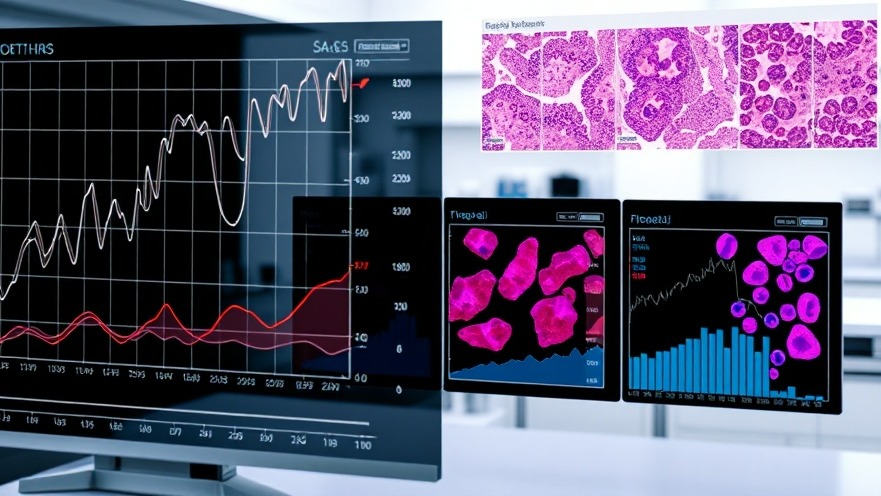
Innovative Stem Cell Technology: A New Era in Chronotherapy for Arthritis
The field of medicine is always advancing, but few developments hold the potential to revolutionize the way chronic conditions, such as arthritis, are managed as significantly as the latest innovation stemming from Shriners Children's St. Louis. Researchers have unveiled a groundbreaking method of drug delivery utilizing engineered stem cells that automatically administer arthritis medications in alignment with the body’s circadian rhythms, potentially providing relief for millions who suffer from rheumatoid and juvenile arthritis.
The Importance of Timing in Medication
Rheumatoid arthritis affects nearly 1.5 million people in the United States alone, and its impact extends to families and communities nationwide. Patients frequently endure debilitating pain and inflammation, primarily occurring in the early mornings. This leads to non-compliance with medication regimens, as traditional approaches often demand cumbersome dosing schedules. This is where the innovative concept of chronotherapy comes into play, proposing that aligning drug delivery with the body’s natural rhythms can enhance efficacy.
Dr. Farshid Guilak and his team have developed sophisticated chronogenetic gene circuits that utilize synthetic biology principles to craft stem cells capable of releasing anti-inflammatory drugs precisely when patients need them most.
How the Technology Works: Circadian Rhythms and Drug Delivery
At the heart of this innovation is the concept of chrono-genetics—a unique approach marrying biotechnology and an understanding of circadian rhythms. Circadian rhythms are the physiological and behavioral cycles that operate on a roughly 24-hour schedule, regulated by various factors, including light exposure. The engineered stem cells contain circuits programmed to synchronize with these rhythms, ensuring that drug delivery is timed with the body’s biological clock.
This technology differs from previous attempts through its ability to not only respond to inflammation but to anticipate flare-ups based on a patient's internal chronotype. As Dr. Guilak pointed out, “Patients who suffer from arthritis experience their peak symptoms in the early hours, precisely when traditional medication regimens are often ineffective due to patient non-compliance.”
Research Highlights and Findings
Published in Nature Communications, the findings detailed the development of gene circuits that express therapeutic agents in a manner that aligns with the circadian clock. By implanting cells capable of producing anti-inflammatory drugs at targeted times, the study approaches the realm of personalized medicine, allowing for tailored treatment strategies that could drastically improve patient outcomes.
This has greater implications not only for arthritis but also for other inflammatory conditions and chronic illnesses that exhibit diurnal variations in symptoms.
The Future of Chronotherapy
As interest in chronotherapy expands, there’s potential for applications across various diseases, including cancer and cardiovascular conditions. Chrono-tailored drug delivery systems are gaining attention for their prospects to optimize therapeutic efficacy while minimizing side effects. Their ability to address biological timing could reshape patient care and compliance, making it a vital consideration across specialties.
Addressing Concerns: Safety and Efficacy
While the possibilities are exciting, there remain some hurdles to achieve widespread implementation. Researchers must ensure that the stem cells and delivery systems are safe and effective long-term. Regulatory issues also present challenges, as healthcare practitioners seek to balance innovation with rigorous testing and approval processes. Nevertheless, successful development in this area could greatly enhance drug delivery systems across many disciplines, leading to improved therapies and patient adherence.
In a field always on the brink of transformation, solutions that consider the body's natural rhythms could provide new hope for chronic disease management—much like the innovative drug delivery systems stemming from this study. For healthcare practitioners, staying informed on these advancements keeps them on the cutting edge of patient care, ensuring they are ready to implement the best practices for their patients.
Get Ahead: Understanding Chronotherapy Applications for Patients
As advancements in chronogenetics continue, healthcare practitioners can enhance their knowledge of this emerging field to leverage its benefits in practice. Engaging with this research allows for more profound insights into patient management, ensuring greater adherence, improved outcomes, and overall quality of life enhancement.
 Add Row
Add Row  Add
Add 






Write A Comment